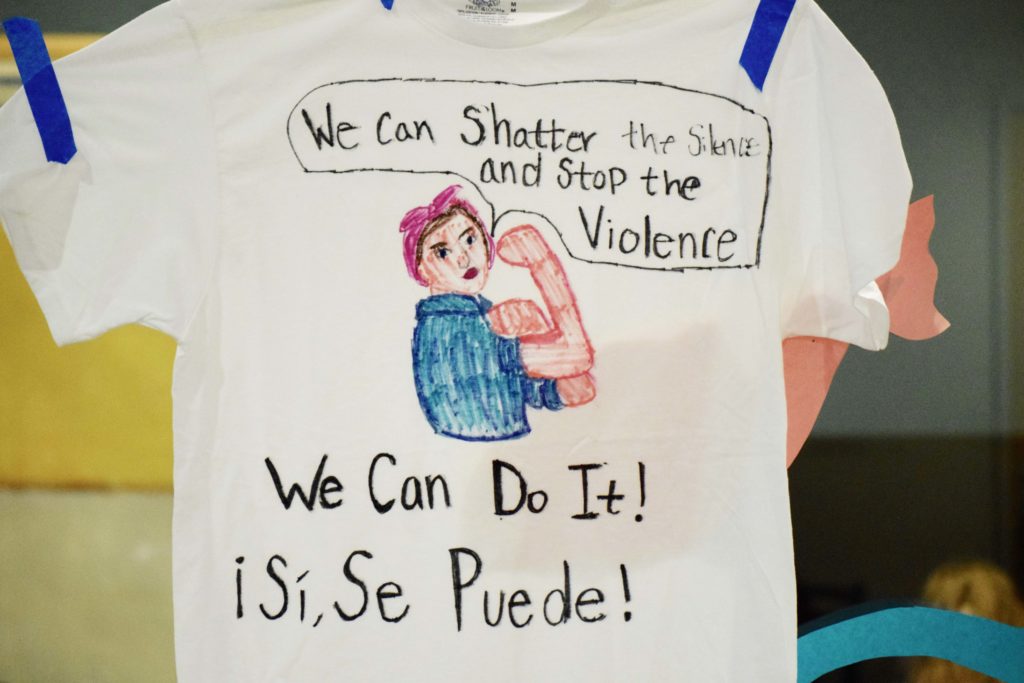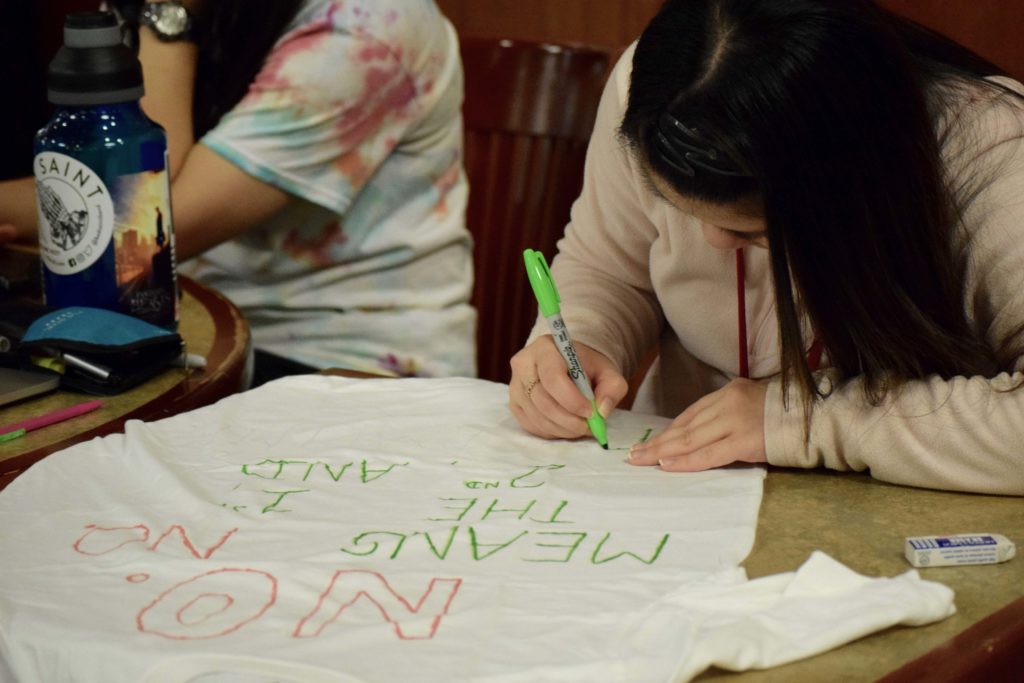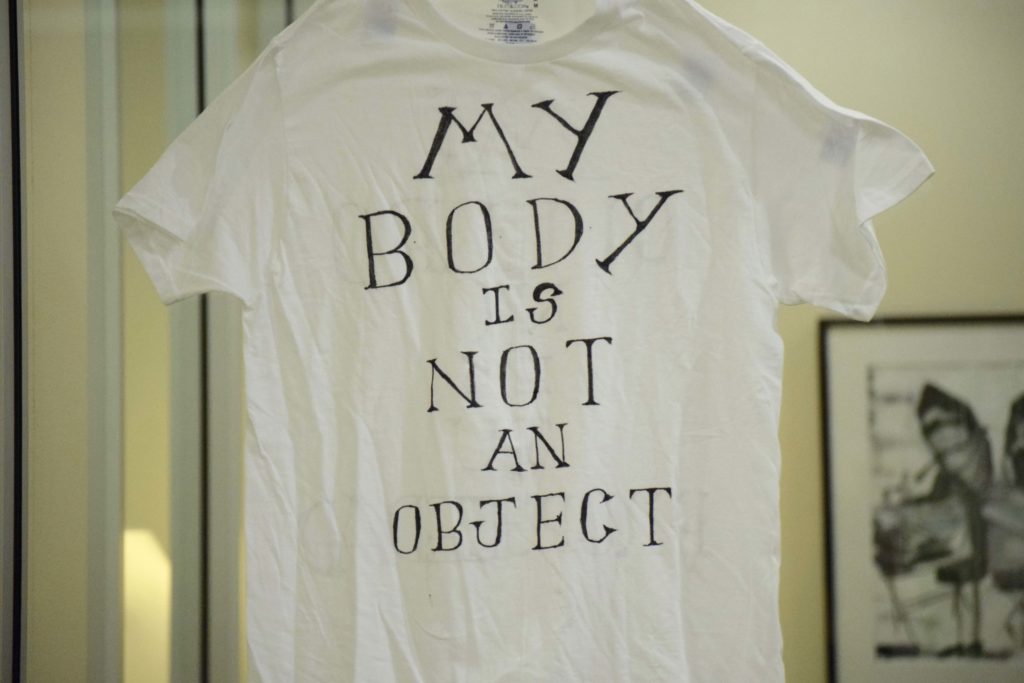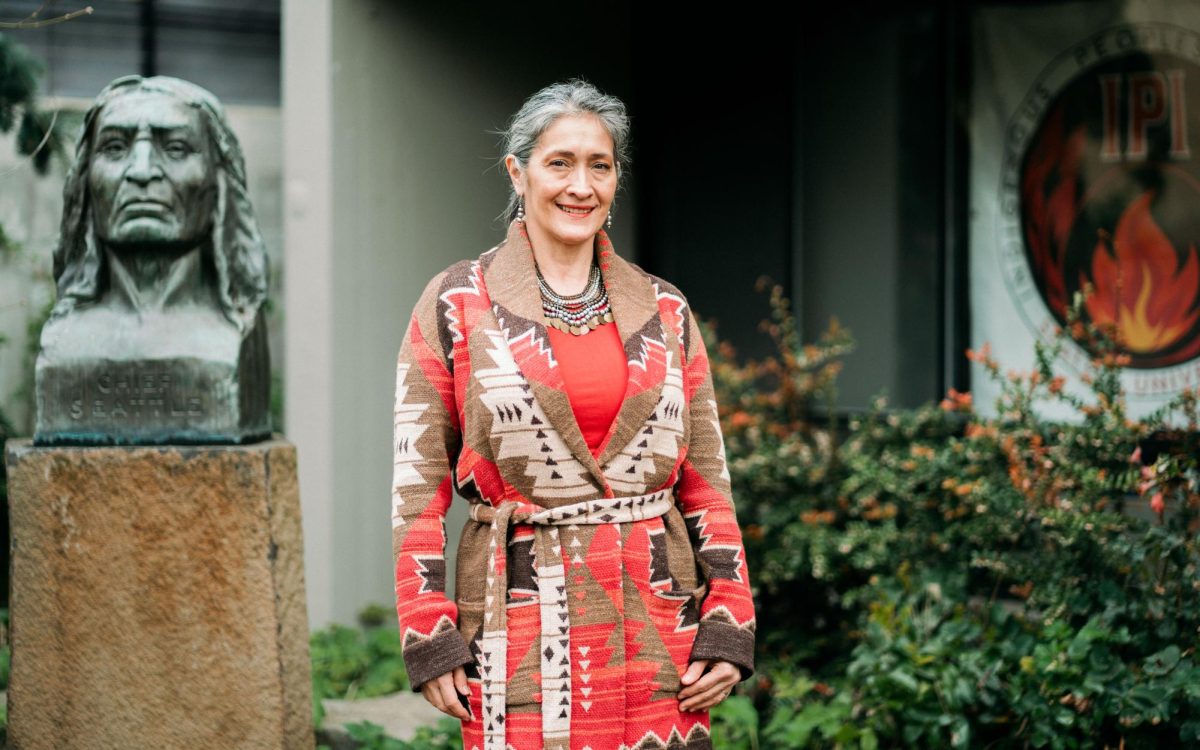While eating at Cherry Street this week, students who regularly dine in the cafeteria gazed at something new: a display of t-shirts, decorated under a theme of sexual assault and domestic violence, along the balcony of the Student Center. These t-shirts are part of a nationwide movement called the Clothesline Project.

The Clothesline Project allows community members to create t-shirts in commemoration of survivors of sexual assault during Sexual Assault Awareness Month.
“The idea behind it is that we decorate t-shirts to honor and support survivors of sexual assault and domestic violence,” said Ashley Abel, a sophomore biology major and Health and Wellness Crew (HAWC). “Using a t-shirt, we’re relating it to the survivors themselves and the clothes that they were wearing when this happens.”
While the national project originally focused specifically on women, Abel said Seattle University opened the campaign up to people of all genders, in recognition that many survivors aren’t necessarily female.
Abel hopes that the publicity of the Clothesline Project will start a conversation on campus.
Abel said that last year at Seattle University, there were zero reported sexual assaults. She believes this to be inaccurate, meaning that many sexual assaults on campus go unreported.
“It can be a horrifying experience, very traumatic, and [survivors] can feel very alone,” Abel said. “So we want them to know that people are out there, having these t-shirts, having other students who are survivors or who are allies or who are willing to talk and be there for other students, that’s a really empowering feeling.”
Abel said that the Clothesline Project will also hopefully publicize another event next week, called Take Back the Night.
“Take Back the Night is an event to support those who have experienced sexual assault, and/ or domestic violence,” said senior communications major Jane Hunter. “This year’s theme is a really big focus on building community for those who have experienced sexual assault or domestic violence.”

A student creates a t-shirt for the Clothesline Project in honor of Sexual Assault Awareness Month.
Hunter continued that HAWC’s partnership with Survivors Support Network (SSN), a Seattle U club that helps provide resources for survivors of sexual assault, has helped center the event around survivors and their personal experiences.
While Take Back the Night will focus on survivors, Hunter clarified that allies are also welcome to come in order to learn about how best to support survivors.
Hunter explained the various aspects of Take Back the Night, including a brand-new program called “Taking Action.”
“We’re getting local organizations and clubs on campus to pull together a wealth of resources so people can go to every single table and see which resources are available to them on the campus,” Hunter said.
In addition to “Taking Action,” Take Back the Night will also include a march around campus, for which
participants are encouraged to create signs. Hunter said there will also be four speakers, as well as a slam poet and an open-mic portion of the event where people can share their stories. The night will conclude with a vigil.
“We’re gonna have candles, and people can say a prayer if they want to, they can say a poem, or just words that have stuck with them, or just words of support,” Hunter said.
First-year graduate student and SSN member Marissa DiBella explained that the primary goals are to build supportive communities and to empower those who have experienced domestic violence or sexual assault.
“Oftentimes at Take Back the Night, we have people coming up and saying ‘this is the first time I’ve ever spoken about what happened to me,’” DiBella said. “So I’m really hoping that it works to empower people and start their healing process in a different way.”
Further, DiBella hopes that allies can leave with a better understanding of how best to support survivors of sexual assault or domestic violence.
DiBella also clarified that while the Clothesline Project and Take Back the Night are partnered during Sexual Assault Awareness Month, they’re different in that they use different media to express the experiences of survivors. While Take Back the Night will feature speakers and spoken- word, the Clothesline Project helps survivors to process their feelings and use artistic expression as an outlet. She believes that the visual component is particularly compelling.
“You know, we hear the statistics, we hear the ages that people are more likely to experience this kind of violence,” Dibella said. “But then when you see these stories displayed on t-shirts, you tie it back to: these are really human experiences, way past the numbers.”
Josh may be reached at
[email protected]












